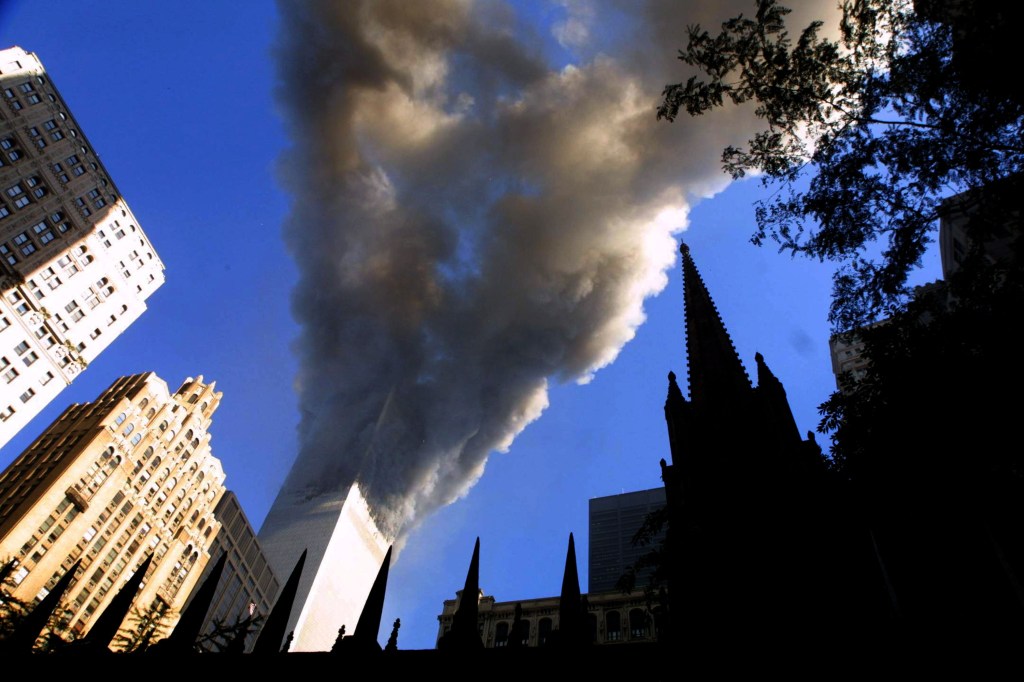On one bright Tuesday morning 23 years ago today, our whole world changed. A city reeled. A war unlike any other in American history began.
A generation of young adults has a hazy understanding at best of what transpired on Sept. 11, 2001, of the depth of the damage done, of its wider significance. In the service of national memory, this is our attempt to set down what happened on that day and in its aftermath.
Nineteen fanatics, acting in the name of Islam, killed 2,997 innocent men, women and children in New York City, in Washington, and on airplanes turned into weapons of mass murder.
The shock and pain rippled outward, to sons and daughters who lost mothers and fathers, to parents who lost children, to sisters and brothers, to friends.
The death and injury and destruction dealt this, the nation’s largest city, the capital of the world, a stiff punch to the gut. It throttled our economy. It rattled our sense of safety. It bruised our very soul.
The United States too absorbed a body blow, the sudden recognition that people crazed by Islamic radicalism, by a cold and monolithic and backward vision for the planet, marked us for death simply because of what we represent.
From throughout five boroughs and 50 states, heroes descended on the place, now called Ground Zero, where physical wreckage and human remains commingled.
On that smoldering pile, in that solemn resting place, those firefighters and police officers and ironworkers and volunteers labored tirelessly, rescuing who they could, recovering what could be recovered.
They walked into the rubble to help and emerged as heroes. They also emerged, in many cases, with silent afflictions that would plague their lives, and cause their untimely demise.
Even as they battled lung and heart conditions and emerging cancers, these rescuers would have to fight for long years for the health care and compensation the nation owed them.
On that day here at home, the country looked as if for the first time at every vulnerability, reorganizing local and state and federal government to do everything in our power to stop radical jihadists from terrorizing us again.
That work continues to this day, even as the source of the threat has morphed from Al Qaeda to ISIS, a new enemy with the same Stone Age ideology and the same sworn vow to destroy America, this messy and free and beautiful pluralistic republic, as the supposed source of all evil.
In the wake of the mass murders, the country looked as if for the first time at shoring up every vulnerability to stop radical jihadists from harming us again. We did this quickly and imperfectly on our airplanes and in our airports, our police departments, our intelligence agencies.
Young men and women went overseas, on orders of presidents, to try to cripple and kill the enemy and its enablers in foreign lands. They went to Afghanistan, which became America’s longest war, where 2,465 U.S. servicemen and women died. They went to Iraq to fight a war barely connected to that terror threat but sold as an essential extension of it. There, 4,586 of our countrymen and women died.
A museum tells the story. A memorial lets visitors remember the ones they loved and lost.
It was only yesterday. It was so long ago.
